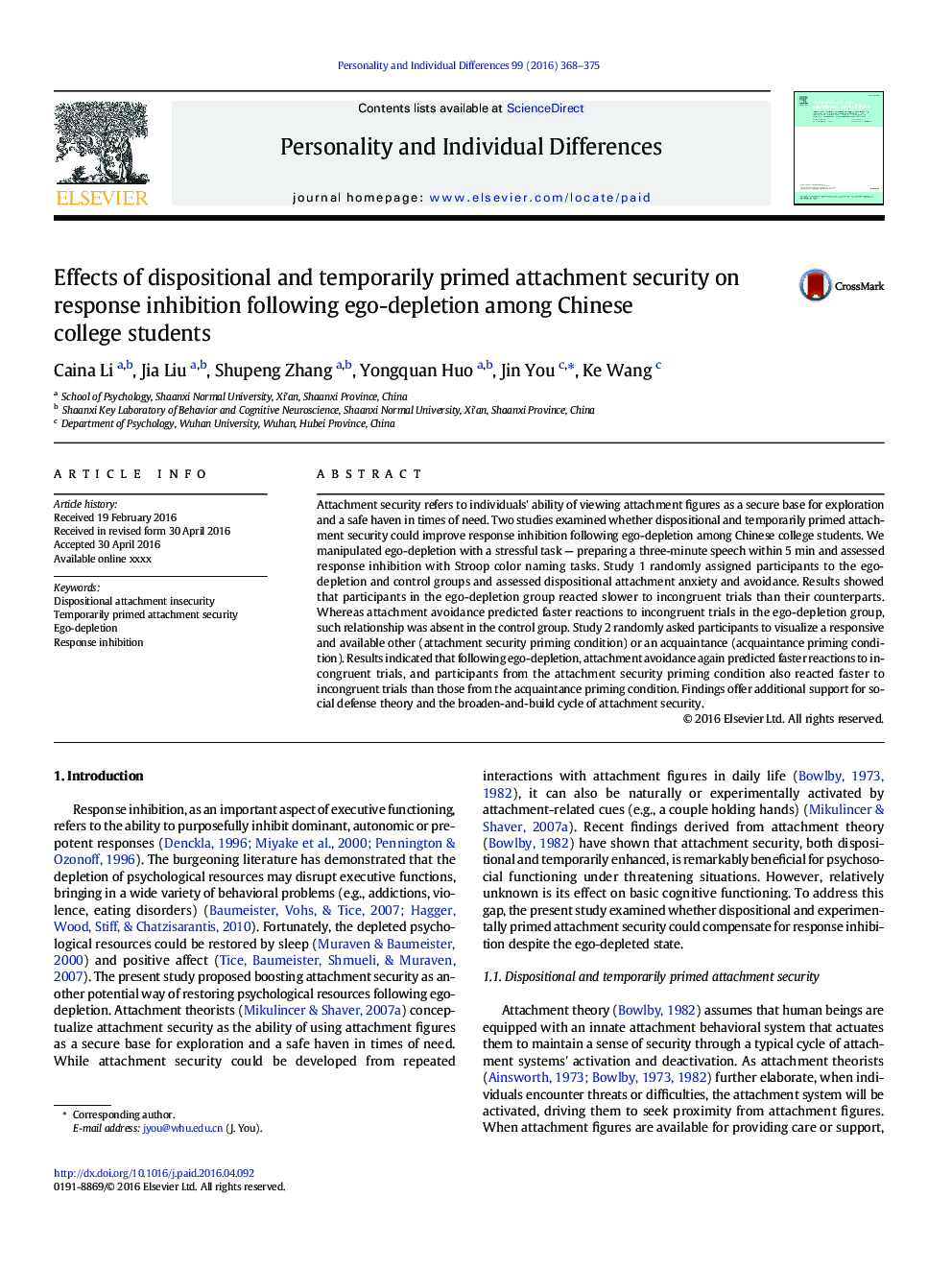| Article ID | Journal | Published Year | Pages | File Type |
|---|---|---|---|---|
| 889745 | Personality and Individual Differences | 2016 | 8 Pages |
Abstract
Attachment security refers to individuals' ability of viewing attachment figures as a secure base for exploration and a safe haven in times of need. Two studies examined whether dispositional and temporarily primed attachment security could improve response inhibition following ego-depletion among Chinese college students. We manipulated ego-depletion with a stressful task - preparing a three-minute speech within 5Â min and assessed response inhibition with Stroop color naming tasks. Study 1 randomly assigned participants to the ego-depletion and control groups and assessed dispositional attachment anxiety and avoidance. Results showed that participants in the ego-depletion group reacted slower to incongruent trials than their counterparts. Whereas attachment avoidance predicted faster reactions to incongruent trials in the ego-depletion group, such relationship was absent in the control group. Study 2 randomly asked participants to visualize a responsive and available other (attachment security priming condition) or an acquaintance (acquaintance priming condition). Results indicated that following ego-depletion, attachment avoidance again predicted faster reactions to incongruent trials, and participants from the attachment security priming condition also reacted faster to incongruent trials than those from the acquaintance priming condition. Findings offer additional support for social defense theory and the broaden-and-build cycle of attachment security.
Keywords
Related Topics
Life Sciences
Neuroscience
Behavioral Neuroscience
Authors
Caina Li, Jia Liu, Shupeng Zhang, Yongquan Huo, Jin You, Ke Wang,
